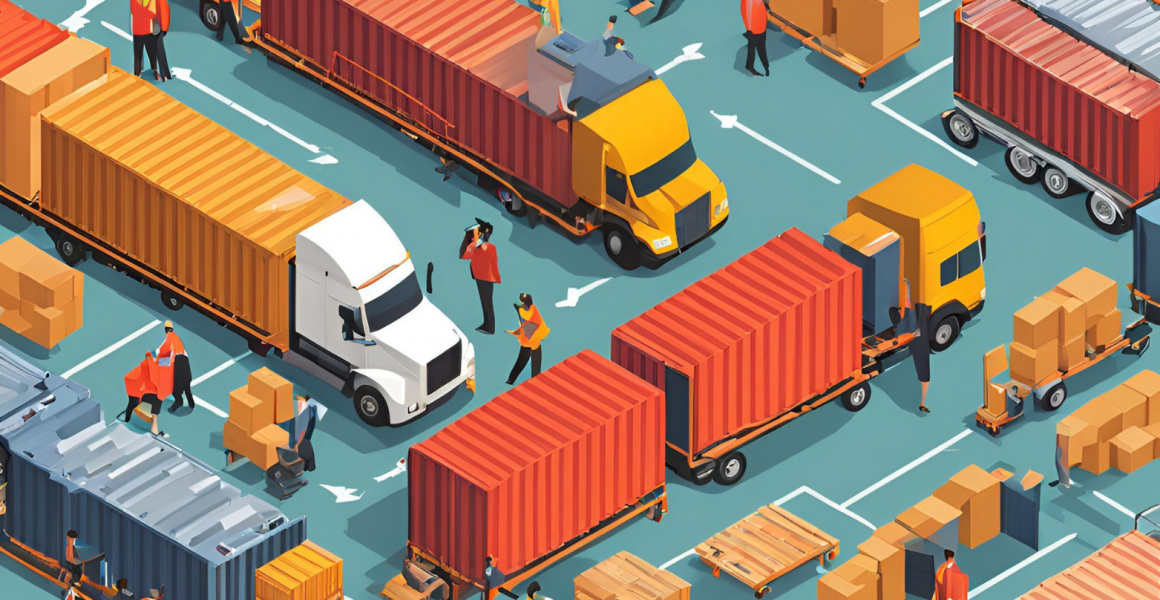The latest trends in collaborative logistics and their benefits

Collaborative logistics, an innovative approach to supply chain management, has gained significant importance in recent years. This model focuses on cooperation between various players in the logistics chain, including manufacturers, suppliers, retailers and logistics service providers, to optimize operations and achieve mutual benefits. The trend toward collaborative logistics is driven by the need to address various challenges, including environmental, operational and financial issues. We will then explore the latest trends in collaborative logistics, the problems they aim to solve, and the role of process outsourcing in this context. We end with an example of the Portuguese approach to collaborative logistics, also suggesting potential improvements.
One of the most significant trends in collaborative logistics is the use of digital platforms that facilitate information sharing in real-time and coordination between the parties involved in the chain. These platforms allow for more efficient use of available cargo and sharing of resources, reducing the infamous empty runs and improving the overall efficiency of the chain. For example, cloud-based Transport Management Systems (TMS) enable seamless communication and collaboration, ensuring that all parties have visibility of the status of shipments at all stages of the chain and possible delays.
Another trend is a greater focus on sustainability. Companies are now looking to this topic to reduce their carbon footprint by optimizing transport routes, consolidating shipments and using environmentally friendly vehicles. Green logistics initiatives, such as using electric trucks and renewable energy sources for warehouses, are becoming increasingly common as companies strive to comply with regulatory requirements and consumer demands for environmentally responsible practices.
In addition, the increase in the number of shared warehouses and distribution centers has become a key aspect of collaborative logistics. Companies can reduce costs and improve service levels by sharing logistics and distribution facilities. This model allows for better utilization of space and resources, leading to significant cost savings and greater operational efficiency.
Collaborative logistics helps to tackle environmental challenges by reducing the number of vehicles on the road. This leads to lower fuel consumption and a reduction in greenhouse gas emissions. In addition, shared storage reduces the need for multiple facilities, reducing energy use and minimizing the environmental impact of building and maintaining separate warehouses.
Operationally, collaborative logistics streamlines processes and gains efficiency. Sharing and coordinating data in real time enables better planning and execution of logistics activities, reducing delays and improving service reliability. The shared use of assets, such as warehouses and transport vehicles, also leads to better use of resources and lower operating costs.
Financially, collaborative logistics offers significant cost savings through resource sharing and efficiency gains. Companies can reduce capital expenditure on logistics infrastructure and benefit from economies of scale. Shared investment in technology and infrastructure also reduces the financial burden on individual companies, making it more feasible to implement advanced logistics solutions.
Operational outsourcing plays a crucial role in the success of collaborative logistics. By outsourcing logistics functions to specialized providers, companies can leverage the expertise and resources of these providers to improve efficiency and reduce costs. Outsourcing allows companies to focus on their core competencies, while benefiting from the advanced technology and optimized processes offered by logistics or human resources service providers.
Outsourcing also facilitates better scalability and flexibility. Companies can adjust their logistics operations based on fluctuations in demand without the need for significant investments in infrastructure and personnel. This adaptability is particularly beneficial in a dynamic and often unpredictable logistics environment.
Portugal has embraced collaborative logistics through various initiatives aimed at improving the efficiency and sustainability of the supply chain. There has been significant investment in digital platforms that facilitate real-time information sharing and coordination between the various players in the chain. These platforms have improved the use of available cargo, route optimization and resource sharing, leading to significant efficiency gains.
Portugal has also seen green logistics initiatives. For example, the use of electric vehicles for urban deliveries and the implementation of renewable energy solutions in warehouses, reducing the environmental impact of logistics activities. Investment in shared warehouses and Distribution Centres has also been observed, thus optimizing the use of resources and reducing costs.
Despite the progress made, there is still room for improvement in Portugal's collaborative logistics efforts. Improving the integration of digital platforms with existing logistics systems can further simplify operations and improve efficiency. In addition, increasing the adoption of advanced technologies, such as artificial intelligence and blockchain, can increase transparency and traceability in the supply chain.
Encouraging greater participation by small and medium-sized enterprises (SMEs) in collaborative logistics initiatives can also lead to further improvements. Providing incentives and support for SMEs to adopt collaborative practices can help create a more inclusive and efficient logistics ecosystem.
Collaborative logistics represents a promising approach to tackling the environmental, operational, and financial challenges faced by the logistics sector. By leveraging digital platforms, promoting sustainability, and sharing resources, companies can achieve significant efficiency gains and cost savings. Process Outsourcing further enhances the benefits of collaborative logistics by providing expertise, scalability and flexibility. The example of Portugal demonstrates the potential of collaborative logistics, but also highlights the need for continuous improvement and innovation to fully realize its benefits. As the logistics landscape continues to evolve, collaborative practices will play a crucial role in shaping a more efficient and sustainable future.
